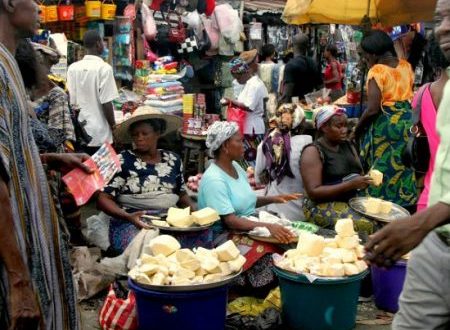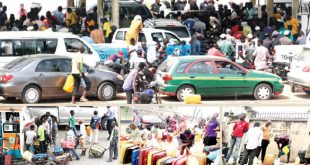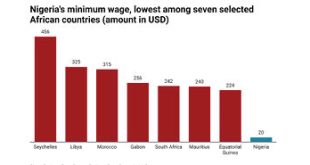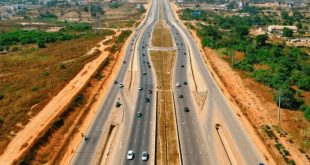Voice of Reason with Abraham Amah
The initial shock that hit the economy in the aftermath of the removal of the fuel subsidy had shaken it to its foundation and threw it into a turbulence that unnerved Nigerians and sent even the best of policymakers scampering for new ideas and paradigms to stabilise and prevent its further nosedive. With an economy that is almost entirely dependent on the petro-dollar, the free fall of the naira to dollar exchange rate was an additional headache because it spiked inflation, much to the embarrassment of the new President Bola Tinubu’s government. In the early days of this administration, the ship had run into strong currents and needed the experience and dexterity of a tested sailor to steady the sinking ship.
Day after day, prices of food items soared beyond the reach of average Nigerians, even as the rich also began to cry. Food shortages occasioned by low output arising from insecurity have been the single major contributor to the high rate of inflation witnessed in the last few months. Matters were made worse because Nigeria’s manufacturing sector has remained unproductive due to a series of factors including the inability of manufacturers to source forex to import raw materials. All these and more complex factors not incubated by this administration began to cast doubt on the ability of President Bola Tinubu to throw in his Midas Touch and undo the damage inflicted on the economy by the miscalculated and ill-informed policies of previous administrations.
Thankfully, with a few bold policy decisions and new directions, the ship is beginning to steady on its sail and there is a visible reversal of the poor economic indices. The economic results of the last few weeks are providing hope that dispels the despair and despondency that had enveloped the country a few months ago, and it is clear that the Tinubu administration now has a strong handle on the economy going forward. Today, it is obvious, even to naysayers, that the floating of the exchange rate was a good decision and is beginning to yield results as the dollar is waxing strong against the dollar, dropping from the height of N1840 to the current rate of N1380 to $1, with expectations that it would stabilise to N700 – N500 to a dollar over the next 8 to 12 months.
Made possible by the clearing of the outstanding huge forex obligation that put pressure on the naira against the dollar, the seamless provision of forex to deserving applicants would further strengthen the dollar, especially as the nation’s foreign reserve, which had been depleted before the exit of the last administration, now boasts of N33b value with a view to climbing up to N100b over the next 18 months.
With the clearing of the outstanding forex obligations and its steady supply, the economy is sure to bubble back to full capacity amid very high hopes that the companies that left for reasons associated with forex claims and repatriation of profits would return. The foreign airlines that had scaled down their operations now have good reason to return and continue to cut their pie from Africa’s largest aviation market. Importers of raw materials that are not available in Nigeria are also able to access forex easily and quickly return to their machines to flood the markets with the few essential goods that are produced locally, thereby cutting off the hydra-headed inflation that had cut off some essential menus from our dining tables. Recent economic forecasts show that inflation, which had reached an alarming 31%, will gradually revert to a single digit within the next 12 to 18 months.
One does not need to travel far to see that the Tinubu administration’s bold step in removing the fuel subsidy was the initial good move it made to begin to reinvent the economic wheel that had been clogged. The removal of fuel subsidy was an action that brought to the fore the underlying malaise that plagued the economy, which previous regimes had diagnosed but failed to apply the appropriate medication and therefore left malignant and festering. Thankfully, the harsh but curative medication applied by President Tinubu is beginning to heal the wounds, and the coming onstream of the Dangote refinery, reputed to be the largest in the world, and the expected functioning of Nigeria’s state refineries in Port Harcourt, Warri, and Kaduna would wrought another magic and possibly reduce the high cost of petrol, the major stimuli that market forces responded to and spiked the runaway inflation that dealt with us very severely.
Beyond resuscitating the refineries, the money saved from the fuel subsidy is giving every tier of government deep pockets and no government at any level should make any excuse about the payment of salaries and pensions and restore the purchasing power of the average Nigerian, which inflation had destroyed. Similarly, the huge financial outlay available to the sub-nationals should spur infrastructural development across the board in road construction, decent and affordable schools, good hospitals, decent markets, and many others, with multiplier effects that should reverberate in all sectors of the economy.
With a working economy and a settled mind, now is the time for the President to start building the super highways he talked about with so much passion during the presidential campaigns. It is possible to build super highways that connect all six geopolitical zones by roads, and railways and create trade opportunities between them to harness their full potential as geo-economic zones, with all they bear underneath. The successful reinvention of the economic wheel would be made more meaningful and sustainable if the sub-nationals begin to open up the States for economic growth to the point that they do not have to fully rely on the handouts from the center for survival, but that is a story for another day.
While it is visible that the economy is getting a turn-around that looks promising, care should be taken to make it enduring. In the immediate, the President needs to muster more political will and courage to confront the twin monsters of corruption and insecurity, just as he did with the fuel subsidy. The figures about how much was pocketed by operators of previous regimes sound like fairy tales but they are true and the President must not allow that to be swept under the rug. He should also tighten the leakages in his regime and must get to the root of the $2.8b that was fingered as unaccounted for in the last forex provision and ensure that it is recovered and plowed back into the system.
It is good that the President has scaled down on the number of people in his entourage and that of his Cabinet members on local and foreign trips and also placed travel restrictions on Ministers and Advisers. The recent training conducted in London by the office of the Accountant General of the Federation for the 36 State Commissioners of Finance was one wasteful adventure that should not be repeated if the President wants to be seen as walking his talk.
If the President is serious with sustaining the new economic trajectory that looks to take us out of the doldrums permanently, then he must be sincere in waging a strong battle against insecurity, not on the pages of newspapers and soundbites as we saw in the last eight years but by getting to the root cause of insecurity and taking it out completely. It is imperative that the present administration understands the importance of having a secure environment for businesses to thrive. For a meaningful economic progress, including huge Foreign Direct Investments, FDI that impacts positively on the economy to be made, it must happen in the hinterland where industries are cited to create employment for the teeming youths and sway them away from the allure of criminality. Unfortunately, the insecurity that remained in the hinterland with sporadic hits at the city centers is gradually creeping into the cities with what we have seen in Abuja in the recent past month. It must be curbed as fast as possible, otherwise it would be worse than what we used to know.
Aside from the farmers-herders clash which has a national coverage, and impacts negatively on food security, other forms of insecurity abound throughout the country and each region presents its peculiar strand of insecurity. Boko Haram and banditry pervade in the North East and North West, the North Central is the hotbed for the farmers-herders clash while unknown gunmen and separatist agitation have seen insecurity spike in the South East, kidnapping is very common in the South West as in other parts of the country. It is gratifying to know that recently, the President was in Niger State to flag off of the Nigeria-Brazil agric mechanization deal that would see Brazil invest $500m in agro-tractor business over a period of time and promised to resolve the farmers-herders clash permanently in three weeks.
The agricultural mechanisation deal, which proposes to deploy at least 2000 tractors in each of the 36 states, cannot be consummated and made productive for Nigeria if farmers cannot go back to the farms and grow beyond subsistence farming and produce for cash and export. The farmers-herders clash, beyond stunting our food security initiatives, has also tested our national unity because the last administration paid lip service to its peaceful resolution and could care less. With each policy proposed to settle the rifts shot down by the people whose farms and means of livelihood were affected, it was apparent that the best measure that would have guaranteed a win-win situation was not followed.
Any proposal to settle the rift must ensure a win-win situation for both farmers and herders and the only way to do that is to resort to modern-day cattle farming through ranching. It is adorable to listen to people make excuses in the 21st century that itinerant cattle herding is their way of life and must not be stopped because the same people fail to realise that farming is another people’s way of life which must also not be stopped because they want to herd their cows in their farms which are their sources of livelihood.
The President must, as a matter of urgency, declare a State of Emergency on the security front and ensure that it is uprooted from the base to give way to economic growth and development which cannot take place in an insecure environment. One of the reasons why insecurity has persisted is because previous leaders failed to address the root causes. It goes beyond buying guns and ammunition because some of the issues are deeply rooted in the fundamental existence and survival of the people.
I expect that the President will use his sound political wisdom to look at all the issues separately, design appropriate tools for each of the security issues, and avoid the mistake of lumping them together as purely a law enforcement and military requirement. For instance, there is a need to begin to deradicalise the elements that have resorted to the insurgency in the North East, create employment opportunities for those that have taken to banditry and kidnapping in the North West, stop the farmers-herders clash all over the country as has been promised and apply a political solution to the agitation in the South East. The President can also help by ensuring that he distributes appointive positions fairly and equitably across the geopolitical zones as a way to reduce the constant cries of marginalisation that are renting the air now as it did in the eight years of the past administration.
All the efforts that have caused the reinvention of the economic wheel for future growth as we have seen in the last few weeks should be redoubled, sustained, and keenly monitored to avoid a relapse to the immediate past, even as it is obvious that the gains are yet to trickle down to the average Nigerian. It behooves the information machinery of the President to carefully educate Nigerians on the hope rising and let them buy into the little gains by supporting the economic programmes and avoid dissipating their energies on attacking critics who by the way mean well and serve as the unofficial advisers of the government without pay.
 National Telescope national telescope newspaper
National Telescope national telescope newspaper



